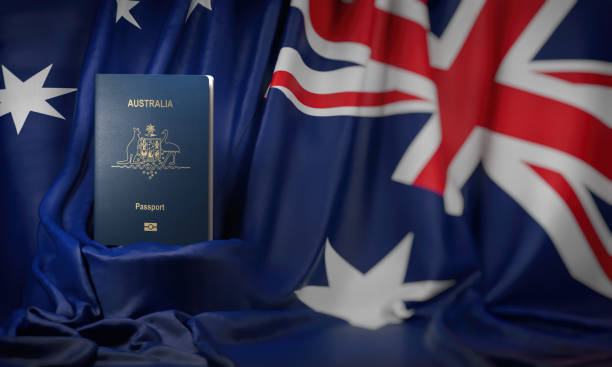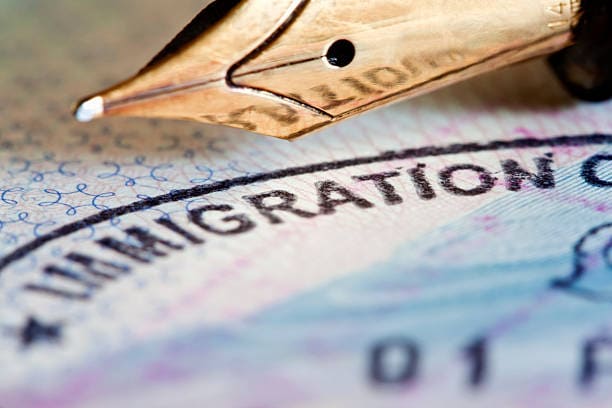Division 3, Subsection AK of the Migration Act 1958 provides for the rules pertaining to non-citizens with access to protection from third countries. Generally, this division stipulates the rules on visas for non-citizens.
According to the International Covenant on Civil and Political Rights (ICCPR), human rights are not limited to the rights of a country’s legitimate citizens. This is because it also applies to non-citizens such as refugees and asylum seekers. Article 2.1 of the Covenant provides that “each party must ensure the rights to the Covenant to “all individuals within its territory and subject to its jurisdiction.”
In line with this, domestic and international rights protect non-citizens with access to protection from third countries who are in Australia or intend to enter or re-enter the country. This article will discuss Sections 91M to 91Q of Subdivision AK.
Section 91M: Reason for Subdivision AK
Section 91M of the Act postulates that a non-citizen who can seek protection from a third country due to nationality or another entitlement to re-enter and remain in the third country should seek protection from that country rather than requesting a protection visa or any other visa in Australia. An illegal non-citizen with access to protection from third countries shall face removal under Division 8.
Section 91N: Applicability of the Rules in Subdivision AK to Non-citizens
Under this Section, the law enumerates the instances when the rules stated in this Subdivision shall apply.
- When the non-citizen with access to protection from third countries is a national of two or more countries (paragraph 1).
- When the non-citizen has a right to re-enter and temporarily or permanently reside in any country (the available country) apart from:
- Australia;
- a country where the non-citizen is a national; or
- If the non-citizen has no country of nationality, the country where they are a habitual resident (paragraph 2[a]).
- When the non-citizen with access to protection from third countries has resided in the available country:
- for a continuous period of at least seven days, or
- if the regulations require a longer continuous period, for at least that length of time (paragraph 2[b]).
- When the Minister declares that the available country is a safe third country.
- Upon receipt of UNHCR advice, the Minister may declare in writing that a specified country:
- gives people seeking protection access to effective procedures for determining their need for protection;
- protects individuals for whom it has protection obligations; and
- whom it owes protection (paragraph 3[a]).
- This declaration takes effect when the Minister makes it and ceases to be in effect when it is revoked by the same (paragraph 4 [a][b]).
- Upon receipt of UNHCR advice, the Minister may declare in writing that a specified country:
- A copy of a declaration, or a revocation of a statement, shall be laid before each House of Parliament within two sitting days of the Minister making the declaration or revocation of the declaration.

Section 91P: Applicability to Non-citizens Who Are Unable to Make Valid Visa Applications
This Section states that for non-citizens with access to protection from third countries who apply for a protection visa or any other visa, they are in the migration zone and do not have immigration clearance at the time of application, the visa application made by them is an invalid application. Furthermore, this rule is subject to Section 91Q of the Migration Act 1958.
Section 91Q: Determination by the Minister Whether Section 91P Applies to a Non-citizen
The rules laid out in Section 91Q are as follows:
1. Suppose the Minister believes it is in the public interest. In that case, the Minister may, by written notice to a specific non-citizen, determine that section 91P does not apply to an application for a visa made by the non-citizen during the period beginning when the notice is given and ending at the end of the seventh working day after the notice is given (paragraph 1).
2. In relation to Section 89 of the Act, the Minister may consider information that raises the possibility that, despite satisfying the description set out in subsection 91N(1) or (2), the non-citizen may be unable to obtain protection from the country, or any of the countries, by reference to which the non-citizen satisfies that description (paragraph 2).
3. If the Minister makes a determination under Section 89, they must lay before each House of Parliament a statement outlining the determination and the reasons for the determination, including the Minister’s reasons for believing that their actions are in the public interest (paragraph 4).
4. A statement under Section 89 may not include the non-citizen’s name, any information that may identify the non-citizen, or if the Minister believes that publishing the name of another person connected in any way with the matter at hand would not be of public interest (paragraph 5).

A Migration Lawyer Can Help You
If you are a non-citizen with access to protection from third countries living in Australia and you feel overwhelmed by the complexity of the country’s laws as to non-citizens’ rights and visa concerns, a migration lawyer can provide you with valuable assistance with a wide range of migration-related matters. Their expertise and guidance can help you achieve your migration goals and protect your rights under Australian law.
At JB Solicitors, expert migration lawyers can assist you well in understanding the Australian laws that are relevant to your situation and make sure that Australian laws safeguard your rights as a non-citizen with access to protection from third countries. If you want to know more about the Migration Act, click here.
Let’s discuss your rights in Australia as a non-citizen with access to protection from third countries. Contact us today.
